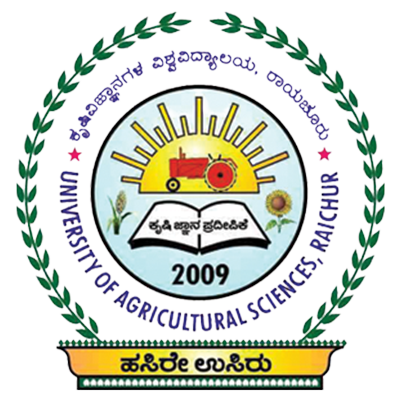The technologies developed by the entomologists are being adopted at state and national level for the benefit of farming community.
Research Achievements by the faculty of the Agricultural Entomology
- Successfully demonstrated area-wide management of pink bollworm on Bt-cotton over an area of 600 acres with Controlled Release Emission Mating Interruption Technology (CREMIT); a mating disruption technique with 90 per cent control in farmers’ field. It is first of its kind in the country wherein, successful management of pink bollworm on Bt cotton was showcased.
- Designed, developed and deployed e-sap (Electronic Solutions against Agricultural Pests), an IT application for Real time, Comprehensive Crop Health management in both agricultural and horticultural ecosystem for the Karnataka State.
- Climate change studies with respect to increased CO2 (550 ppm) concentration in the atmosphere revealed a significant decrease in the Cry toxins in Bt cotton to the extent of 25 per cent (Cry1Ac) and 7.7 per cent (Cry2Ab2), thus, favouring the bollworms mainly PBW to outbreak on Bt
- Demonstration to popularize Direct Seeded Rice (DSR) cultivation as an alternative to puddle transplanted rice made in TBP and UKP command areas. Mere change in planting geometry has resulted in reduction in hopper complex along with sheath blight disease. In addition, DSR also proved as a resource saving technology in terms of saving the cost of cultivation (Rs. 6000/acre), in irrigation water (37 %)and methane gas emissions (35%).
- Confirmed the facultative migratory behaviour in Helicoverpa armigera using a novel tethered flight mill technique under laboratory condition. The study helps in tracking the movement of the pest for better management.
- With the mandate of conservation and augmentation of bio-control agents in different cropping systems of Kalyana-Karnataka region, the AICRP contingent centre on Bio-control was established. Under this programme, NBAIR strains of parasitoids and entomopathogens were mass produced and distributed to farming communities with successful management of target pests.
- Standardized the gamma radiation dose for spotted pod borer, Maruca vitrata (150 Gy) and pulse beetle, Callasobruchus (200 Gy) to induce sterility in adults for managing them through Sterile Insect Technique (SIT).
- Established state-of-art NABL accredited (As per ISO/IEC17025:2005) Pesticide Residue and Food Quality Analysis Laboratory to analyse pesticide residues and heavy metals and aflatoxin in agriculture produce and their products. It is also notified by Govt. of Karnataka as referral laboratory as per the section of the Insecticide Act of 1968.
- Successfully analysed pesticide residue in 13319 samples of cereals, pulses, red chilli, fruits, vegetables, milk and water under MPRNL, Govt. of India. Successfully carried out experiments on persistence and dissipation of selected insecticides under AINP. Analysed heavy metal content in leafy vegetables sponsored by FSSAI.
- Established the state of art of research facility ie., Centre for Agro-climatic Studies of UAS, Raichur which is unique in South India. This centre was credited with a state award of Nagamma Dattatraya Rao Desai cash prize by UAS, GKVK, Bengaluru for outstanding research contribution in the field of climate change.
